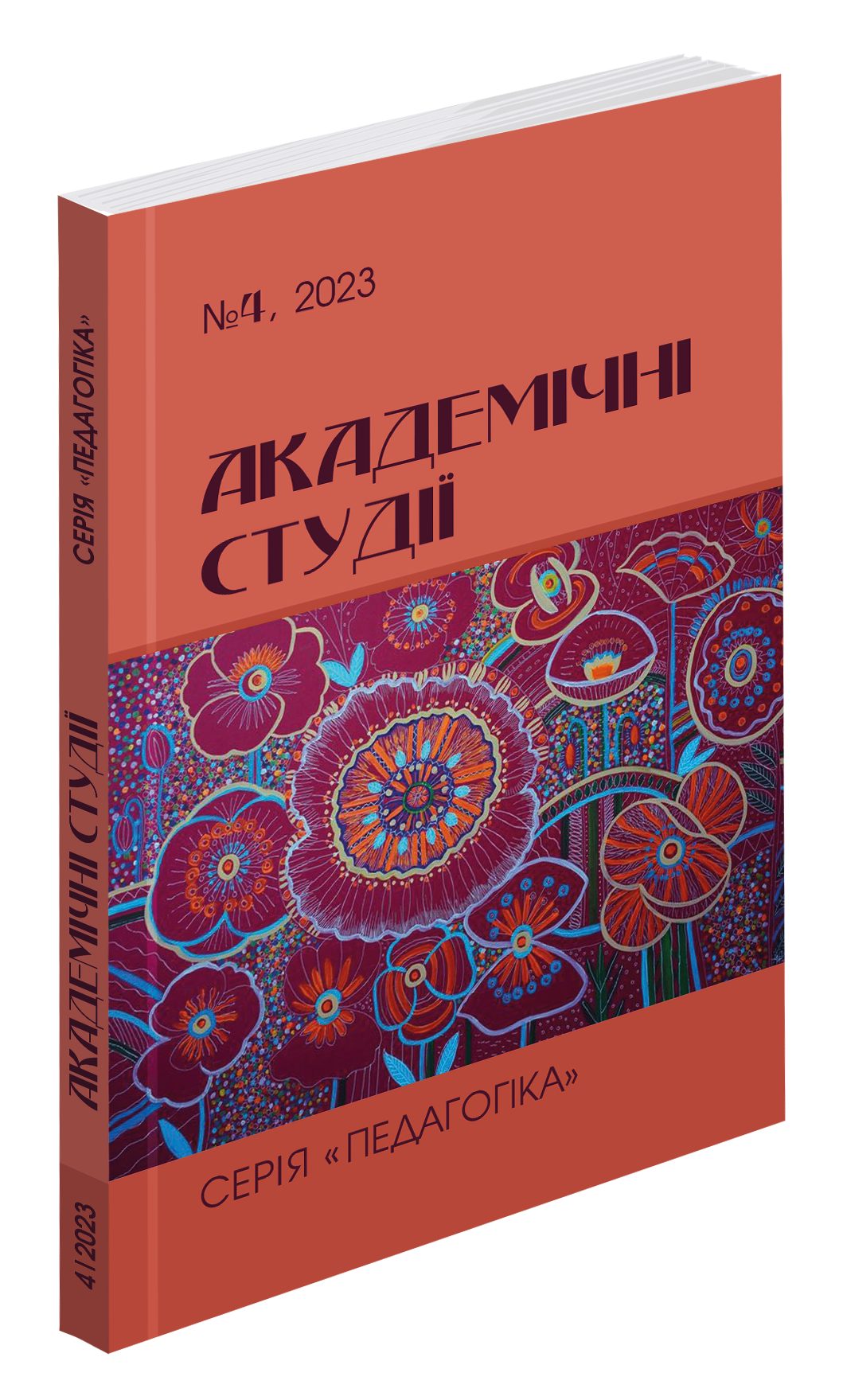Abstract
Many external factors exert an active influence on the process of transformation of educational activities, in particular, on the training of specialists of higher educational institutions. Thus, the COVID-19 pandemic and full-scale wars on the territory of Ukraine became the factors that provoked the transition to a distance and mixed format of education in the training of specialists in higher education institutions. The result of the transition to this form of education was the low motivation of education seekers for active educational activities, due to the fact that the use of gadgets gives immediate access to information, and the need for its active assimilation simply disappears. Higher institutions of professional education, in particular in the medical field, the field of study is dentistry, have the task of motivating future specialists to actively learn theoretical material, that is why teachers implement techniques that activate the educational activity of students even in distance and mixed learning formats. Motivation involves activation to movement, it can be caused by both external and internal factors. Taking into account the peculiarities of the motivation of educational activities, the main factors of influence are external factors that, in the future, activate the internal motivation of the student of education and contribute to his self-development, therefore there is a need for certain external motives that can activate students of the dental field. In this article, we offer a mechanism for motivating students of medical education, the direction of training in dentistry, to active educational activities due to the introduction of the technique of the rating approach, the use of external motivation techniques through creative and scientific projects, as well as due to internal motivation, which involves mastering best practices and striving for ideals.
References
Farkhodovna, Tukhtaeva Khurshida. Aspects of motivating and motivating employees in the organization. Texas Journal of Multidisciplinary Studies. 2022. Vol. 7, 332–337.
Бусел В. Великий тлумачний словник української мови. Київ, Ірпінь «Перун»: 2016. 1696 с. https://slovnyk.me/dict/vts/%D0%BC%D0%BE%D1%82%D0%B8%D0%B2%D0%B0%D1%86%D1%96%D1%8F (Дата звернення 24.11.2023).
Засєкіна Л.В. Психологія мотивації: теорія та практика. Вісник Харківського Національного Університету. Серія «Психологія». 2003. № 599, C. 112−116.
Іванова О.А. Особливості мотивації майбутніх фахівців сфери обслуговування. Інноваційна педагогіка. Теорія і методика професійної освіти. 2022. № 49. Т. 1. С. 119–123.
Микитюк С.О., Микитюк С.С. Мотивація навчальної діяльності як ресурс освітнього процесу Педагогіка формування творчої особистості у вищій і загальноосвітній школах.2021 № 76. Т. 2, с. 212–126.
Мотивація Вікіпедія – вільна енциклопедія. URL: https://uk.wikipedia.org/wiki/%D0%9C%D0%BE%D1%82%D0%B8%D0%B2%D0%B0%D1%86%D1%96%D1%8F (дата звернення: 23.11.2023).
Мотивація як фактор успіху навчальної діяльності / Харк. нац. пед. ун-т імені Г. С. Сковороди, наукова бібліотека ; уклад.: Грущенко С. І. ; вступ. ст. та бібліограф. ред. Неудачиної Т. І.; відп. ред. Коробкіна О. Г. Харків: ХНПУ, 2019. 40 с.
Мотивація. Економічний словник. URL: http://slovopedia.org.ua/105/53404/1092784.html (Дата звернення 24.11.2023).
Нємов Р. С. Психологія. Посібник для студентів ВНЗ /. Р. С. Нємов. В 3 кн. Кн. 1. Загальні основи психології. Рівне : «Вертекс», 2002. С. 534.
Орбан-Лембрик Л. Е. Психологія управління: посібник. Київ: Академвидав, 2003. 568 с.
Пальчевський С. С. Педагогіка: навчальний посібник. Київ : Каравела, 2007. 576 с.
Парфілова С.Л. Бутенко В.Г., Білєр О.С., Харькова Є.Д. Психолого-педагогічні підходи до проблеми мотивації. Science and Education a New Dimension. Pedagogy and Psychology, 2021. IX (97), С. 29–32.
Скрипник І., Кульбашна Я., Захарова В. Формування пракселогічної компетентності магістрів стоматології: мотиваційна складова. Отсвітологія. 2021 (10), 55–65. https://doi.org/10.28925/2226-3012.2021.106
